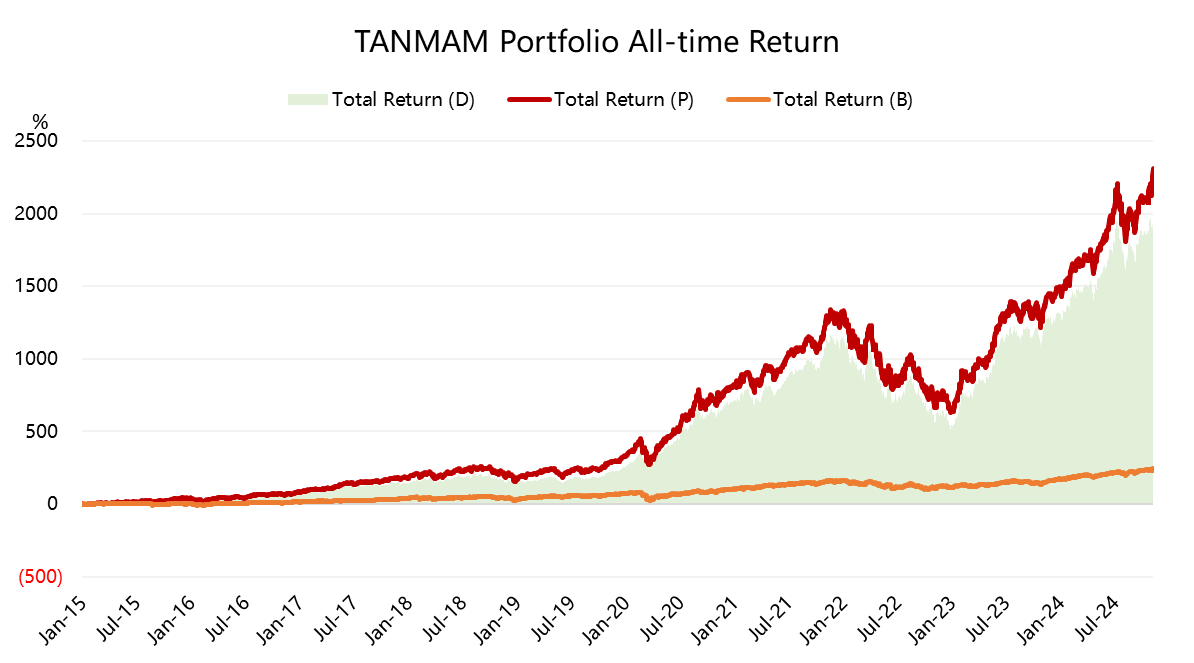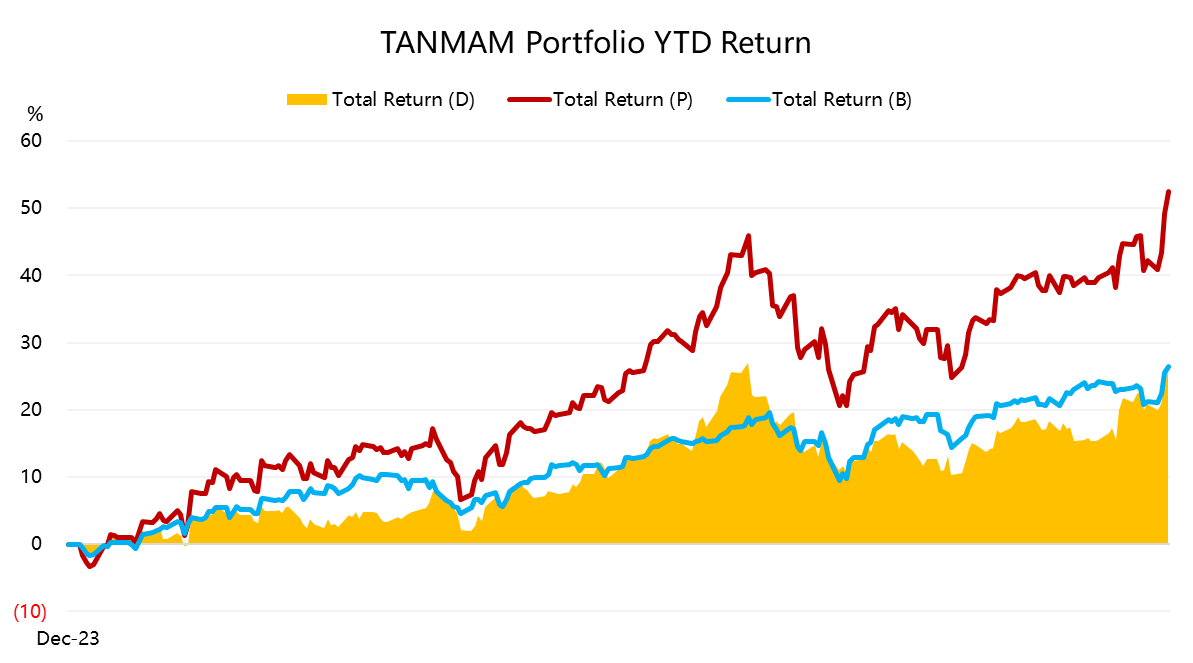Big-Tech’s Performance
With the dust settling from the election and Trump's strong return, coupled with the Republican sweep of the House and Senate, the next 4 years of policy can be implemented with great clarity.U.S. stocks did not "Sell the news", but rather the $Cboe Volatility Index(VIX)$ fell because of the uncertainty, the leading stocks in each sector are at new highs, and risky assets (e.g., digital currencies) surged because of policy expectations.and risk assets (e.g., digital currency-related) are surging on policy expectations.
Among the big tech companies, Tesla gained a lot because of Musk's All-In style, breaking above the previous high, while Nvidia also defied the election volatility and made new highs to reach the top of the market capitalization.Big tech portfolio therefore get "the biggest alpha of the year"
Through the close of trading on November 8th, Big Tech has moved up overall over the past week, with $Apple(AAPL)$ +0.69%, $NVIDIA Corp(NVDA)$ +12.14%, $Microsoft(MSFT)$ +4.69%, $Amazon.com(AMZN)$ +12.68%, $Alphabet(GOOG)$ +5.63%, $Meta Platforms, Inc.(META)$ +4.25%, and $Tesla Motors(TSLA)$ +18.83%.
Big-Tech’s Key Strategy
Trump 2.0, what does it mean for Big Tech?
The overall impact on the tech industry, includes:
A more favorable regulatory environment.Trump's focus on reducing the complexity and restrictiveness of regulations, aided by Elon Musk, is more favorable to tech innovation, and regulations in the financial sector.Of course, Elon's concerns about the safety and ethical implications of AI may also manifest.
Corporate tax break.The "Mag 7" will collectively benefit from the reduction from 21% to 15%.While the effective tax rate actually paid by some companies is already lower than 21%, there may be benefits on other spending fronts.From a financial standpoint, as big tech companies are currently spending a lot of capital, if tax rates bottom out, companies may extend their depreciation lives, allowing for further profit retention.
Trade wars and "monopoly" controversies.Big tech companies may be affected by the trade war, but Trump's intention to put "America First" means that he will protect big tech companies under fire from the EU, and even put in place strong measures.
Regulation of social media: Trump has been particularly critical of Alphabet and Meta, and is unhappy with the platforms' management of content audits.Possible aggressive regulatory action against these companies could affect the way platforms engage in political discussions, and the political climate could shift social media platforms further to the right.
Impact on specific companies
Amazon (positive): regulatory pressure, Trump administration may reduce antitrust pressure on Amazon;
Apple (mixed): supply chain and trade policy aspects may be under pressure, Trump China's attitude is crucial to Apple, mainly in the supply chain stability and tariffs; and in the EU's antitrust regulation, Apple's pressure may be reduced.
Meta (negative): changes in content review policy, Trump may find a way to change the current content review management, also further split Meta users.
Microsoft (mixed): Microsoft will benefit from a deregulated AI environment while reducing antitrust pressures, but potential geopolitical tensions may have an impact, but Microsoft's political stance may be unpopular.
Alphabet (mixed): Google conservatives have been biased against Trump, while Trump suggests that Google is engaged in illegal activities and may take more aggressive regulatory action; but Trump's refusal to spin off Google and would reduce antitrust pressure on it.
Nvidia (positive): growth in the chip sector is unconstrained and the impact of the trade shock has largely been felt.
Tesla (positive): market positioning shift: although Trump supports traditional energy, but Musk and Trump's close relationship could instead give Tesla access to policy tilts.At the same time, Musk's important position in US-China relations also makes Tesla's future prospects in the Chinese market clearer.
Big-Tech Weekly Options Watcher
TSLA: The volume of open Calls in the 300 position for this week's expiration is very high and corresponds to some of the expected demand for liquidity, but a large number of Calls would also be a major sell-off if they do become in-the-money.The good thing is that Tesla expectations are better at the moment, and the center position for expiration in the next two weeks has risen above 300.
NVDA: the most indifferent to the election of the giant, will be released at the end of November earnings, so are now for the continuation of the uptrend to build momentum.November 22nd earnings week to expiry of the Call options, the current center of gravity is only $150, a large number of orders may not have begun to participate in the game.Considering the previous forward order gaming height of 180-190 U.S. dollars, the market is still optimistic about Blackwell's expected Q3 earnings.
Big-Tech Portfolio
The Magnificent Seven form a portfolio (the "TANMAMG" portfolio) that is equally weighted and reweighted quarterly.The backtesting results are far outperforming the $.SPX(.SPX)$ since 2015, with a total return of 2,312.68%, while $SPDR S&P 500 ETF Trust(SPY)$ returned 244.08% over the same time period, once again pulling ahead with an excess return of 2,068.61%.




Comments